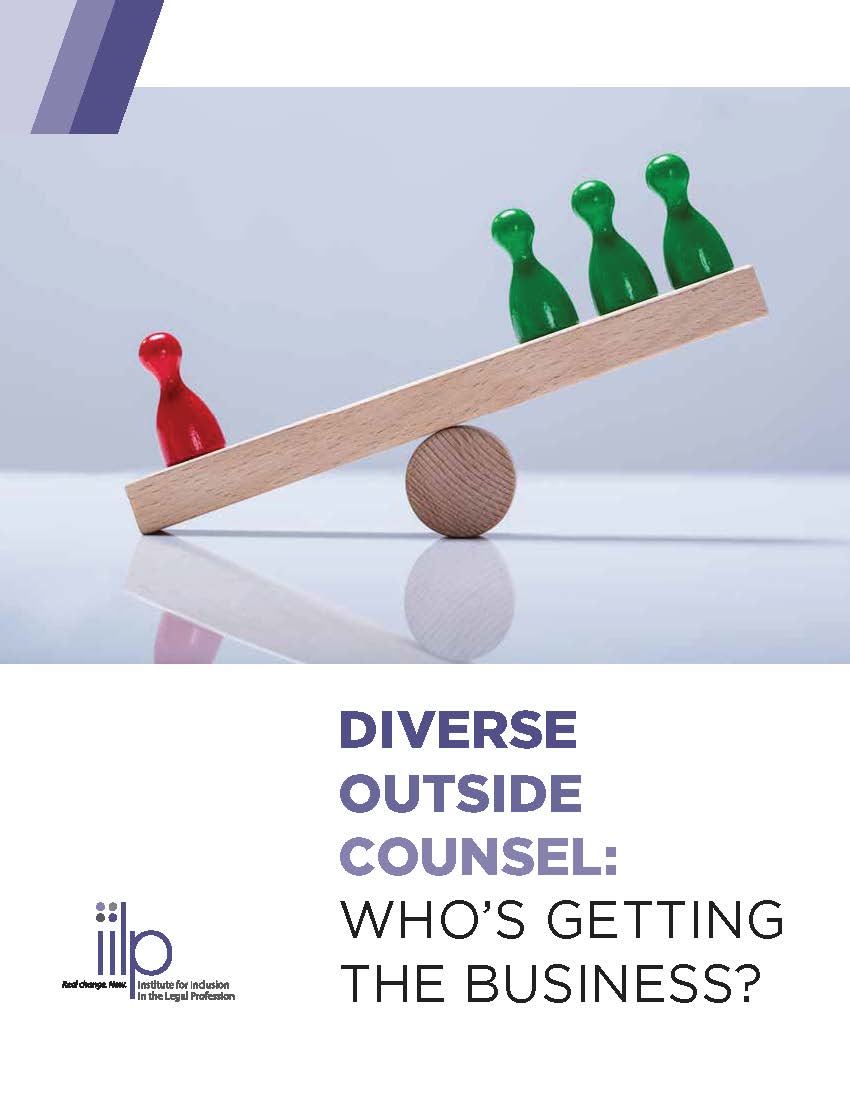
IILP Is Different Since 2009, IILP has provided the profession with a unique set of empirical tools to facilitate a more inclusive legal profession that is reflective of the society which it serves. IILP’s innovative educational programs, research, and publications inspire the profession to think about, and approach, its persistent inclusion challenges in new ways. IILP is different. At the Institute for Inclusion in the Legal Profession that difference is reflected in our mission and our approach to our work: To make the legal profession one where anyone with the requisite talent, aptitude, determination, and integrity can enter it and rise as high within it as those abilities will permit. Whether you have been involved in efforts to create a more inclusive legal profession for years or are new to the endeavor, you’ll find that IILP’s approach is different from the familiar and traditional efforts lawyers, judges and law students have come to expect. We seek real change, now, and offer a new model to achieve it. We hope you will join us. THE INSTITUTE FOR INCLUSION IN THE LEGAL PROFESSION Why We're Different and What We DoContactInstitute for Inclusion in the Legal Profession (312) 628-5885
| NEXT UP: SPECIAL PARTNER EVENT _________________________ A Year of Change: Where Diversity Efforts Stand and Where We Go From Here with Professor Yoshino and David Glasgow History and Heritage Month Webinar Series _________________________ Protest and Progress: Celebrating Black History Through Advocacy and Courage IILP'S RECENT PUBLICATIONS Creating an Inclusive (and Diverse) Environment in Your Hybrid Law Office __________________________________________Diversity, Equity & Inclusion for State, Local, and Metropolitan Bar Associations Corporate Diversity Spend Our MissionFor too long a wall of uniformity has defined the legal profession. A wall that limits entry and advancement based on race, ethnicity, color, culture, gender, nationality, disability, sexual orientation, gender identity and expression, religion, geography and age. A wall that has stood in the way of real change. A wall that has left the legal profession an anachronism in an increasingly diverse society. Past efforts to increase diversity in the legal profession have been sincere but not inclusive enough...not ambitious enough...not robust enough. That’s about to change. The Institute for Inclusion in the Legal Profession will drive real progress through comprehensive outreach and original programming to replace barriers with bridges between legal, judicial, professional, educational and governmental institutions. We will provide high schools, colleges, and law schools with programs to help students excel in an ever-more competitive world, and give young people real hope that there’s a path to success in the law. We will give law firms, bar associations, corporations and government agencies insights for business development and tools to eliminate bias. We will help people spot and get rid of the obstacles to inclusion - from policies...to fear of open discussion...to entrenched attitudes. Our work begins now, with a simple goal: Fewer walls, more doors. Real Change. Now.
Our Core PhilosophyThe legal profession must be diverse and inclusive. Why? It goes to our core philosophy:
|





